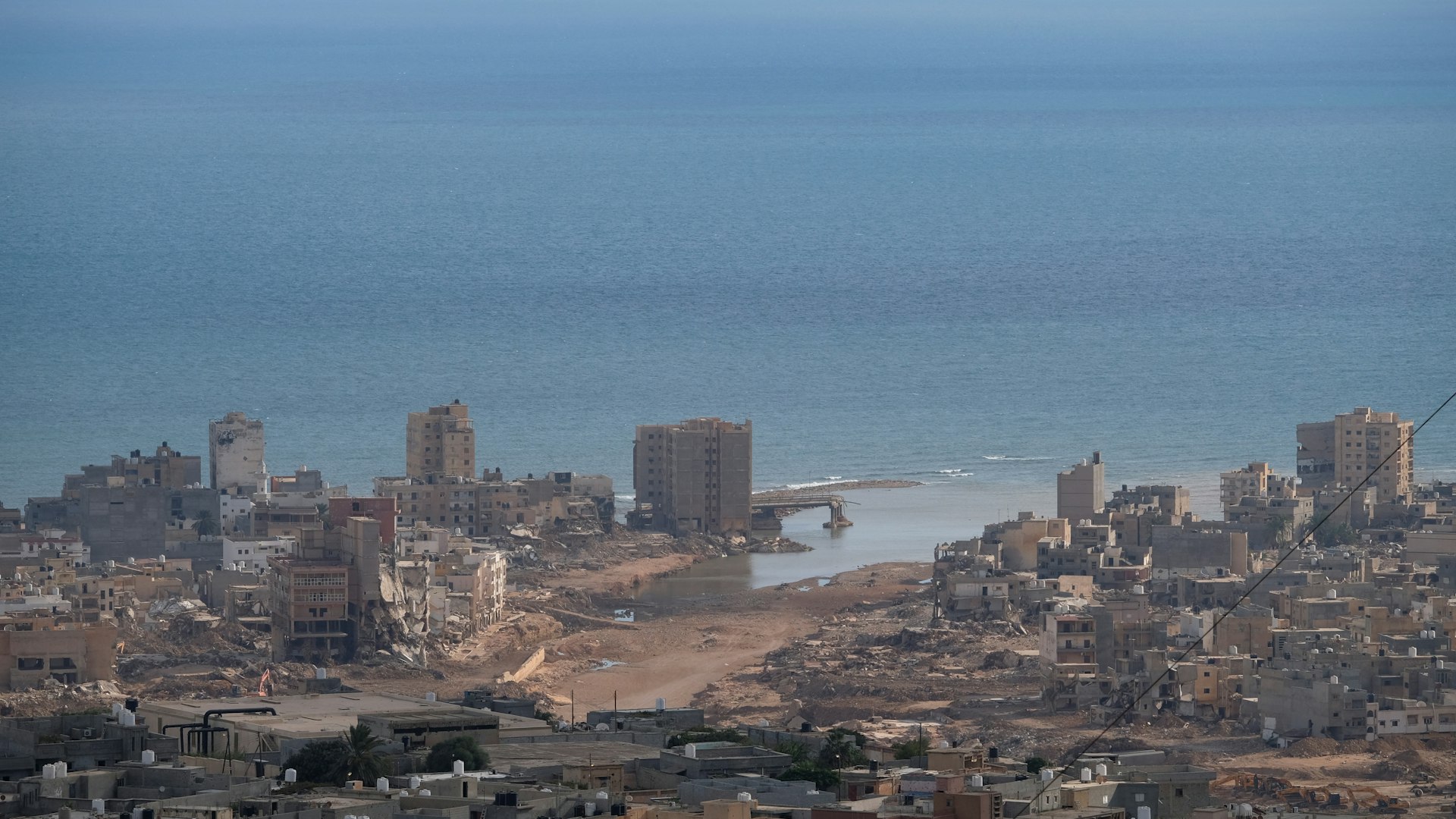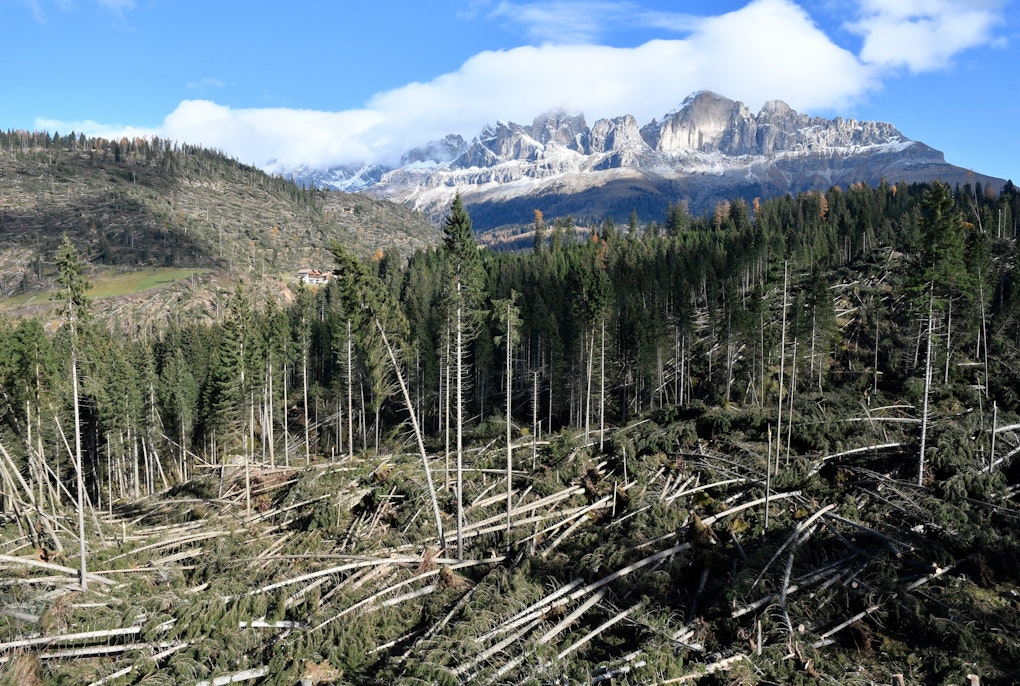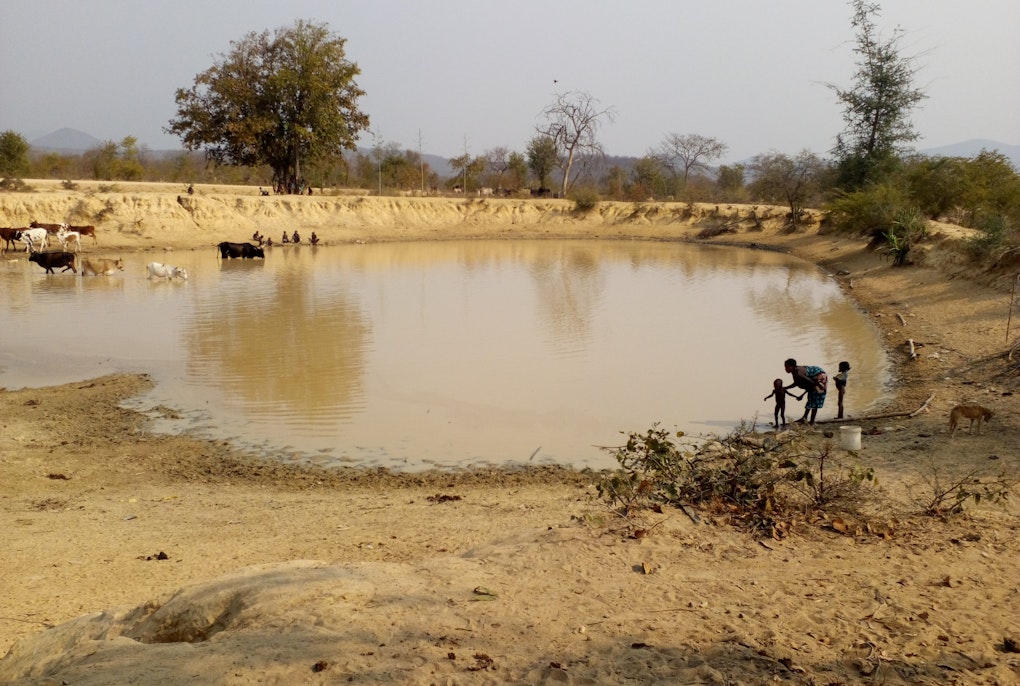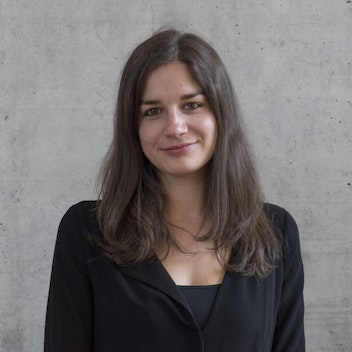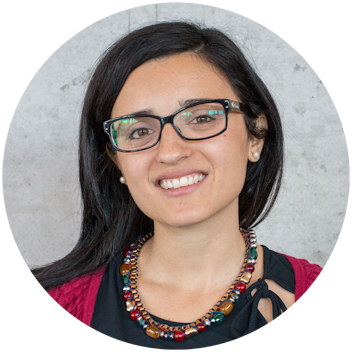magazine_ Interview
We have to learn how to live on a damaged planet
Why technological advancement alone won’t solve climate change
The Libyan port city of Darna after the devastating floods in September 2023
Photo: ESAM OMRAN AL-FETORI | Reuters/Contrasto | All rights reserved
Elisa Ravazzoli, sociologist and human geographer, and Marc Zebisch, geoecologist, come from different scientific backgrounds, but share one belief: technological advancement alone won’t solve climate change. Instead, we need to encompass disciplines and go back to the root causes - human action. Together, Elisa Ravazzoli and Marc Zebisch, have teamed up as heads of the newly established Center for Climate Change and Transformation at Eurac Research, Academia sat down with them with some burning questions.
# In the face of climate change and all the catastrophes that threaten and have already occurred, people often react in two opposing ways: there are the eternal optimists who say that humans are so advanced, they will avert the dangers of climate change with the help of the hi-tech; then, there are the pessimists who say that the ship has sailed anyway. How do you address these opposing beliefs?
Marc Zebisch: Well, we need to integrate both perspectives. We need to develop a solution-oriented, somewhat optimistic mood to take ambitious and effective action. Quickly. This requires the use of new technologies and still-to-be-developed carbon capturing technologies. Nature based solutions such as renaturation of rivers and peatbogs or greening of cities are also needed. Conversely, we need to acknowledge that climate change and its related risks have already led and will further lead to a fundamental and global crisis. Recent events such as the unprecedented flood catastrophe in Libya with more than 10,000 victims are already demonstrating the effects of +1.2°C global warming. Now we are heading towards a +2 - +3°C world. We also have to prepare ourselves for a hotter world with more potential adverse consequences including more conflicts over water, resources, and land.
Elisa Ravazzoli: As researchers we need to provide science-based information. It is not our role to change the minds of people that are sceptical or that believe that there is nothing more to be done. Via effective communication it is our responsibility to inspire understanding, provide accessible information, encourage dialogue, promote a sense of agency, and foster a sense of shared responsibility. For those who believe in technology, I would say that while hi-tech solutions play a crucial role in addressing climate change’s actual and expected effects, it is not a standalone solution. Tackling the complex challenges of climate change requires a comprehensive approach that goes beyond technological advancement and come back to the root causes of climate change: human action!
As researchers we need to provide science-based information. It is not our role to change the minds of people that are sceptical or that believe that there is nothing more to be done.
Elisa Ravazzoli
Mr. Zebisch, you have been working on climate change for two decades; until a few years ago, the phenomenon was often doubted, now, except in some extreme circles it is undisputed. Has your research mission and work changed because of this?
Zebisch: Yes, because today, decision makers and the public are much more aware of climate change and expect solutions from science. In the past there was more a need for actual evidence of climate change itself. And no, because science is not so good in providing solutions, rather analyzing and drawing conclusions. My personal research work is to understand climate risks. Often, decision makers would like the information to know what to do. Here, we mainly help to identify the demand for action, but not be prescribe solutions.
Has the realization that combating and dealing with the consequences of climate change is no longer just the ambit of the natural sciences come too late?
Ravazzoli: That social scientist expertise was required, is something that only gained momentum in the early 21st century. Previously, the focus was primarily on climate science, atmospheric physics, and environmental studies. I am a sociologist and a human geographer with experience in territorial development. As a geographer I am trained to see problems and find solutions in a holistic way and to look at the human-space interaction; these are useful tools to deal with the inter-disciplinarity character of climate change, especially the human dimension of climate change: how social structures and processes contribute, how communities adapt to changing environmental conditions and could become more resilient as well as how community can be integrated into climate change adaptation and mitigation.
Energy transition from fossil to electric and from high consumption to low consumption is the most effective way to reduce greenhouse gas emissions.
Marc Zebisch
Transformation is the new buzzword: we must fundamentally change the way we live and do business. Where is change most urgent and what would make a relatively big difference relatively quickly?
Zebisch: I’m a natural scientist, but in the last years I have understood that the most relevant question is not, “what do we need to know about climate change?”, but “why are we not acting about it?”. The answer involves how existing laws, regulations, subsidies are designed. Many policies are still supporting activities that lead to further emissions or increase vulnerability to climate change. The same is true for the financial systems. Investments in fossil fuel related technologies are still higher than in green solutions. Here, we need a fundamental change in the way policies and financial decision are made, implemented, and evaluated. This can be done relatively quickly by introducing elements such as a climate check for any existing or new policy or investment.
Energy transition from fossil to electric and from high consumption to low consumption is the most effective way to reduce greenhouse gas emissions. A reduction in general consumption and an uptake of fair distribution not only of energy, but also of raw material and goods would be a crucial but hard to achieve change, since our current system is fuelled by consumption. A future system should be more oriented toward sufficiency and circular economy.
Ravazzoli: Transformative changes are needed across various sectors. If I were to mention sectors in which change is urgent, especially referring to our region, I would highlight agriculture and food systems and transportation. Key players in this transformation are governments. They should incentivize sustainable practices and penalize environmental harm, for example carbon pricing.
The most relevant question is not, “what do we need to know about climate change?”, but “why are we not acting about it?”
Marc Zebisch
Is climate resilience a hi-tech or a socio-political issue? Will the younger populations of the Global South have more climate resilience than their aging industrialized countries?
Ravazzoli: Technology provides the tools and the solutions, but the effectiveness of resilience depends on the social and political contexts. Young populations in developing countries might be able to develop more adaptive capacity to climate change but in many cases developing countries suffer from not having enough financial resources, inclusive decision-making, and political stability to become resilient. Resilience is a system-wide change regardless of the age of the population.
Zebisch: The social aspects are crucial. Richer countries as the main “producers” of climate change are often less affected by it. They are also less vulnerable due to their higher technical and financial capacities to adapt. In future there will be a legal obligation through the Loss and Damage mechanism of the Paris Agreement, that these richer countries support and compensate poorer ones. Young people in the most affected countries are and will be the first to migrate to reach regions with more favourable conditions. If we don’t halt climate change and help countries to adapt, we might see a more aggressive push-back of the migration movement and increasing conflicts.
Technology provides the tools and the solutions, but the effectiveness of resilience depends on the social and political contexts.
Elisa Ravazzoli
**Do you believe in voluntary societal change in small steps, or will drastic political coercion be needed as it was during the Covid pandemic?
Zebisch: Actually, both. Covid, compared to climate change, was a relatively short-term event. Regarding climate change, we need sustainable actions that are accepted, claimed or even initiated by the society. Therefore, we need a cultural change, in the sense of “how things are done”. This can only be achieved if voluntary societal changes drive larger political changes. At the same time, we need responsible policy makers to develop fundamental and effective changes. Here, we have to understand, that most policy makers are, luckily, not politicians that depend directly on public opinion. Most major climate actions were prepared by the European Commission, not politicians.
Ravazzoli: I also believe that the most effective approach is a combination of both. On the one hand, voluntary actions in the sense of bottom-up initiatives can create a cultural shift and build the momentum to make changes, even the more radical ones, more acceptable. On the other, political coercion as in top-down policies and regulations to incentivize businesses and individuals to adopt sustainable practices can provide the necessary mechanisms to ensure widespread impact. However, successful strategies should involve collaboration between governments, businesses, communities, and individuals to create comprehensive and sustainable solutions.
So, what predominates your views on climate change, optimism or pessimism?
Ravazzoli: What makes me optimistic is seeing the increasing activism and youth-led initiatives surrounding climate change taking place around the world. Young people are responsible and responsive to environmental issues. They are particularly engaged in advocating for climate action and show a desire to push for meaningful environmental policies. This stewardship is a crucial characteristic for addressing the complex and urgent issues of climate change. What makes me pessimistic is the lack of global cooperation, geopolitical tensions, and differing national interests that hinder effective collective efforts. And, even though I do notice increased efforts from local governments to address climate change and the associated environmental problems, there is still a gap between policy goals and tangible actions.
Zebisch: I would not classify myself either way. I would say, without optimism, I would not be able to do my job. And that we can mitigate the worst. On the other hand, I expect that climate change will further affect our society – in particular the already more vulnerable parts of society in an unprecedented way, and that not all of these impacts can be avoided. I believe that “we have to learn how to live on a damaged planet”. I would not see that is pessimism but as radical realism
Center for Climate Change and Transformation
In the Center for Climate Change and Transformation scientists from all over Eurac Research (seven Institutes and four centers) are working together in an inter and trans-disciplinary way to study how climate change impacts Earth’s ecological and social systems and to better understand the cause-effect relationships which lead to key risks. The center is partner in the project RETURN (multi risk science for resilient communities under a changing climate), financed by the Italian PNRR (Piano Nazionale di Ripresa e Resilienza).
About the Interviewed
Marc Zebisch is a geoecologist and the head of the Center for Climate Change and Transformation at Eurac Research. He holds a PhD from the Potsdam Institute for Climate Impact Research and the Technical University of Berlin and has been involved in climate impact research and climate risk assessment for almost 20 years.
About the Interviewed
Elisa Ravazzoli coordinates the “Space and Society” research group at Eurac Research’s Institute for Regional Development and is Deputy Director of Eurac Research’s Center for Climate Change and Transformation. After studying sociology and geography, she obtained her Ph.D. in Economics and Spatial Policy at the University of Bologna. She works on transformative practices, social innovation, local and regional development processes, and climate change adaptation.
